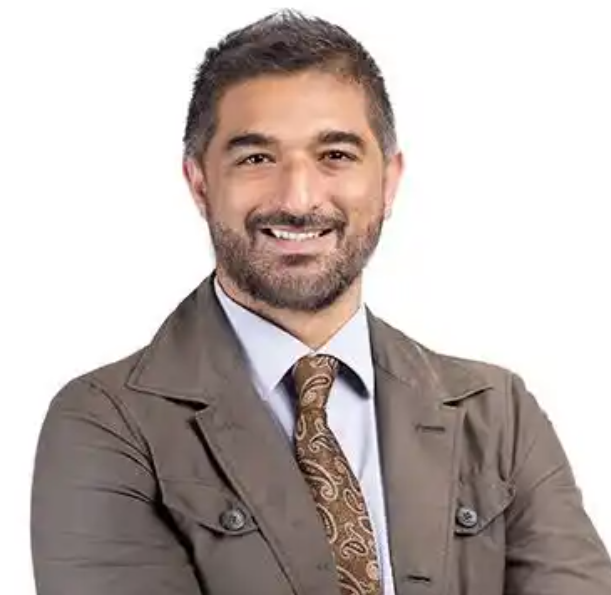The ongoing controversy surrounding the Adani Group’s attempted takeover of Jomo Kenyatta International Airport (JKIA) has drawn intense national attention, fueled by revelations from whistleblower Nelson Amenya.
Amenya, a former manager at a multinational company in Kenya and currently pursuing his MBA in France, has made claims, bringing to light what he describes as a deeply rooted “Indian Syndicate” working behind the scenes to facilitate this takeover.
At the center of the controversy is Dr. Samier Muravvej, the Board Chairman of Kenyatta National Hospital (KNH).
According to Amenya, Dr. Samier has played a big role in advancing Adani Group’s interests in the airport deal, placing him among the key players in this secretive and controversial operation.
Dr. Samier’s name is not new to public scrutiny, as his tenure at KNH has been tainted by previous allegations of corruption.
He was involved in a multimillion-dollar oxygen supply tender scandal, where insiders accused him of bypassing procurement procedures to favor suppliers of his choice.
This history of alleged impropriety has led many to question his involvement in the Adani-JKIA deal.
Aaron Cheruiyot, Kericho Senator, has also been implicated by Amenya as a critical broker of the deal.
According to Amenya, Cheruiyot made key connections between the Adani Group and Kenyan officials, even traveling to India to meet with Adani’s leadership.
Amenya has challenged Cheruiyot to publicly deny these allegations, further deepening the intrigue around the affair.
The whistleblower claims the deal is structured in a way that would significantly weaken Kenya’s control over JKIA operations.
Not only does the Adani Group seek to take over key management roles, but it also aims to secure airport fees, contracts, and a percentage of staff control.
More alarmingly, the deal includes clauses that would hold the Kenyan government responsible for compensating Adani in the event of protests or disruptions that affect the company’s profits.
These provisions place the country at risk of hefty payouts, potentially saddling Kenyan taxpayers with huge liabilities.
Amenya’s disclosure of the Adani deal has resulted in heightened scrutiny, both from the public and political figures.
However, his decision to speak out has not come without consequences.
Since going public with his findings, Amenya has faced threats, intimidation, and legal trouble, with the Directorate of Criminal Investigations (DCI) launching an investigation into his company.
According to Amenya, this investigation is a politically motivated attempt to silence him and discredit his whistleblowing efforts.
Despite the gravity of the claims, the Kenyan government has attempted to downplay the controversy.
Key figures, such as Isaac Mwaura, have reassured the public that no final agreement has been reached with the Adani Group, and discussions are ongoing.
Mwaura emphasized that JKIA remains a national asset and will not be sold under any circumstances.
However, the lack of transparency surrounding the negotiations has raised concerns about the future of one of Kenya’s most strategic infrastructures.
The public response to the revelations has been widespread, with citizens and politicians alike expressing concerns over the implications of such a deal.
The controversy has prompted protests, parliamentary inquiries, and heated discussions in the media, with many questioning the long-term consequences of allowing a foreign entity like Adani to take control of a key national asset like JKIA.
It is clear that the JKIA-Adani deal is far from resolved, and Amenya’s whistleblowing has opened a Pandora’s box of issues that will likely shape Kenya’s political and economic landscape for years to come.





















Add Comment